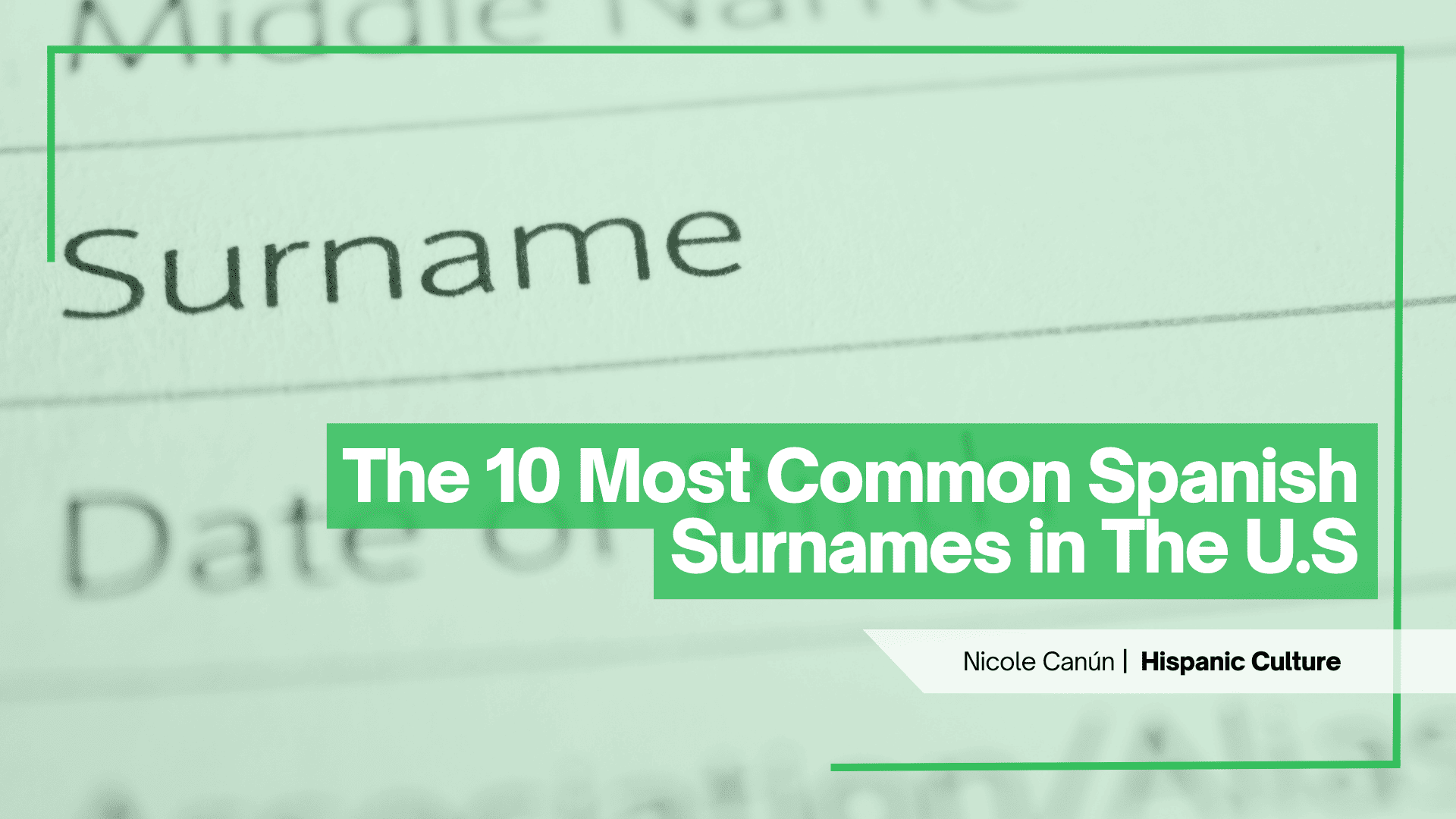Spanish surnames unique in their essence, carry a rich tapestry of history, culture, and tradition that connects individuals to their ancestors and roots. Whether you're exploring your family tree, naming a child, or simply intrigued by the diversity of Spanish naming conventions, these surnames offer a fascinating glimpse into the past. From the rolling hills of Andalusia to the vibrant streets of Barcelona, each name tells a story, reflecting influences from Roman, Moorish, and indigenous cultures. Dive into the world of Spanish surnames and uncover the beauty of their uniqueness.
Understanding the origins and meanings of Spanish surnames unique to specific regions or families allows us to appreciate their depth. Many of these names have evolved over centuries, shaped by historical events, migrations, and societal changes. For instance, patronymic surnames like "Fernández" (son of Fernando) or "González" (son of Gonzalo) highlight the importance of family lineage in Spanish culture. Meanwhile, surnames derived from geography, occupations, or even nicknames showcase the creativity and diversity of the Spanish-speaking world.
For those seeking a deeper connection to their heritage or simply looking for inspiration, exploring Spanish surnames unique in their construction and significance can be an enriching experience. These names are more than just labels; they are a testament to identity, pride, and belonging. In this article, we’ll delve into the origins, meanings, and stories behind some of the most intriguing Spanish surnames, helping you understand why they stand out and how they continue to shape cultural identity today.
Read also:How To Securely Connect Remoteiot Vpc Raspberry Pi Free Download For Windows
Table of Contents
- What Makes Spanish Surnames Unique?
- How Do Spanish Surnames Reflect Family Heritage?
- Are There Regional Variations in Spanish Surnames?
- Why Are Spanish Surnames Unique in Naming Conventions?
- Top Unique Spanish Surnames and Their Meanings
- How to Choose a Spanish Surname for Your Family?
- Famous People with Unique Spanish Surnames
- The Cultural Significance of Spanish Surnames
- How to Trace Your Spanish Surname Origins?
- Frequently Asked Questions About Spanish Surnames
What Makes Spanish Surnames Unique?
Spanish surnames unique in their structure often follow a dual naming system, where individuals inherit both their father’s and mother’s last names. This tradition, known as "apellido paterno" and "apellido materno," is a hallmark of Spanish naming conventions. For example, someone named "Maria Lopez Garcia" would have "Lopez" as their paternal surname and "Garcia" as their maternal surname. This practice not only preserves family lineage but also creates a sense of balance and equality in honoring both parents.
Another factor that sets Spanish surnames apart is their etymological diversity. Many names are derived from Latin, reflecting Spain’s Roman heritage, while others have Arabic roots due to centuries of Moorish rule. Additionally, indigenous influences from Latin America have further enriched the pool of Spanish surnames unique to the Americas. This blend of linguistic and cultural elements makes Spanish surnames a vibrant mosaic of human history.
How Do Spanish Surnames Reflect Family Heritage?
Spanish surnames unique in their ability to preserve family history often serve as a direct link to one’s ancestors. For instance, surnames like "de la Cruz" (of the cross) or "del Valle" (of the valley) indicate geographical origins, while names like "Herrero" (blacksmith) or "Molina" (mill) reflect ancestral occupations. These surnames not only tell us about the lives of our forebears but also highlight the values and traditions passed down through generations.
Are There Regional Variations in Spanish Surnames?
Yes, regional variations play a significant role in the diversity of Spanish surnames unique to specific areas. For example, surnames like "Navarro" and "Vasquez" are more common in the Basque Country and Navarre, reflecting the distinct cultural identity of these regions. Similarly, Catalan surnames such as "Puig" (hill) or "Ribalta" (riverbank) are prevalent in Catalonia. These regional differences add depth and nuance to the study of Spanish surnames, making them a rich field for exploration.
Why Are Spanish Surnames Unique in Naming Conventions?
One of the most distinctive features of Spanish surnames unique to this naming system is the inclusion of compound surnames. Unlike many cultures where individuals carry a single surname, Spanish tradition emphasizes the combination of both parents’ last names. This practice not only honors both sides of the family but also ensures that family ties remain strong across generations.
Moreover, the use of diminutives and affectionate forms in Spanish surnames adds a personal touch. For example, "López" might become "Lopito" or "Lopita" in informal settings, creating a sense of intimacy and familiarity. This flexibility in naming conventions makes Spanish surnames stand out as both formal and endearing.
Read also:Unleash The Fun A Complete Guide To Games Unblocked
Top Unique Spanish Surnames and Their Meanings
Here are some of the most unique Spanish surnames and their fascinating meanings:
- Alvarez: Meaning "son of Alvaro," this surname is derived from the Germanic name "Alvar," meaning "elf army."
- Cabrera: Refers to someone who lived near a place abundant in goats, from the Spanish word "cabra" (goat).
- Esparza: Indicates someone from a thorny or spiny area, derived from the Basque word "espartza."
- Montoya: Means "mountain" and is often associated with families living in mountainous regions.
- Zamora: Refers to a city in Spain, signifying someone from or connected to Zamora.
How to Choose a Spanish Surname for Your Family?
Choosing a Spanish surname unique to your family can be a meaningful process. Start by researching your ancestry to identify surnames that resonate with your heritage. Consider the meanings and origins of the names, as well as their cultural significance. If you’re naming a child, think about how the surname will complement their first name and whether it reflects the values you wish to pass on.
Famous People with Unique Spanish Surnames
Here are some notable individuals with unique Spanish surnames:
| Name | Surname | Profession | Birth Year |
|---|---|---|---|
| Pablo | Picasso | Artist | 1881 |
| Gabriel | García Márquez | Author | 1927 |
| Salma | Hayek | Actress | 1966 |
The Cultural Significance of Spanish Surnames
Spanish surnames unique in their cultural impact often serve as a bridge between past and present. They are a testament to the resilience and adaptability of the Spanish-speaking world, reflecting centuries of conquests, migrations, and cultural exchanges. By preserving these names, individuals keep their heritage alive, ensuring that future generations remain connected to their roots.
How to Trace Your Spanish Surname Origins?
Tracing the origins of Spanish surnames unique to your family can be a rewarding journey. Begin by consulting historical records, such as birth certificates, marriage licenses, and immigration documents. Online genealogy platforms and archives can also provide valuable insights. Additionally, connecting with relatives or local historians may uncover stories and details that bring your surname’s history to life.
Frequently Asked Questions About Spanish Surnames
Why do Spanish surnames often include "de" or "del"?
The use of "de" (of) or "del" (of the) in Spanish surnames often indicates a connection to a place or a noble lineage. For example, "de la Vega" means "of the meadow," while "del Castillo" translates to "of the castle."
Are Spanish surnames unique to Spain?
No, Spanish surnames unique to Spain have also spread across Latin America and other Spanish-speaking regions, evolving to reflect local cultures and traditions.
What is the significance of double surnames in Spanish culture?
Double surnames in Spanish culture emphasize the importance of family ties and ensure that both maternal and paternal heritages are preserved.
How can I find the meaning of my Spanish surname?
You can research the meaning of your Spanish surname by consulting etymological dictionaries, genealogical resources, or cultural experts familiar with the history of Spanish names.
Why are Spanish surnames unique in their structure?
Spanish surnames unique in their structure due to the dual naming system, which combines paternal and maternal surnames, reflecting a deep respect for family heritage.
By exploring the world of Spanish surnames unique in their origins and meanings, you can gain a deeper appreciation for the cultural and historical richness they represent. Whether you’re tracing your ancestry or simply fascinated by the diversity of names, Spanish surnames offer endless opportunities for discovery and connection.

